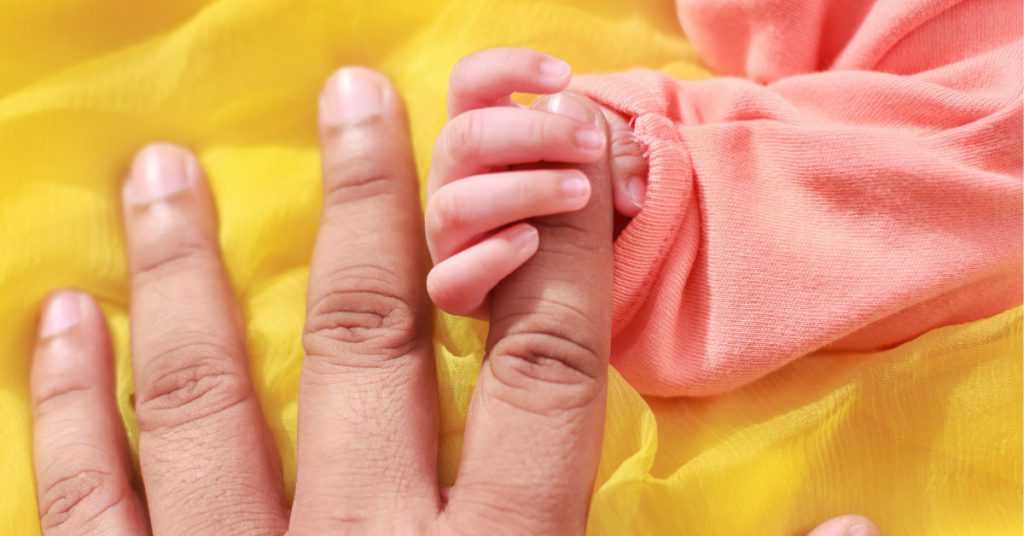Almost all parents talk about their first time holding their baby. They describe it as an ecstatic feeling, incomparable to any other emotion. What exactly is this feeling? This feeling is brought about by the very special hormone oxytocin, aka the love hormone. Oxytocin is a neurotransmitter and a hormone that is involved in childbirth and breastfeeding.
It is also linked to empathy, trust, sexual activity, and relationship formation. Because oxytocin levels rise during hugging, bonding, or any happy occasion, it is called the “love hormone.” Females usually have a higher level of oxytocin than males. The hypothalamus produces oxytocin, which is then transported to and secreted by the pituitary gland, located at the brain’s base. It is involved in all aspects of female reproduction, from sexual activity to childbirth and breastfeeding.
Oxytocin and Emotions
According to one review of research, oxytocin has a positive impact on emotional behaviors such as:
- trust development in a relationship
- overall psychological stability
- reduced stress and anxiety levels
- empathy
- gazing at your loved one
- positive communication
- processing bonding cues


Oxytocin and Motherhood
Oxytocin serves several functions in motherhood. Following are some of them:
Oxytocin and Labor
Labor is a challenging time for a female. Oxytocin hormone causes the uterus to contract, kicking off labor. After the delivery, oxytocin assists the uterus in returning to its original size after delivery. In addition, it also stimulates the production of relevant hormones for childbirth.
Oxytocin and Lactation
Breastfeeding is an important activity for the mother and child to bond. When a baby latches on to its mother’s breast, oxytocin is released. This tells the mother’s body to start producing milk for the baby. Breastfeeding is encouraged for as long as possible to strengthen the loving bond between the mother and child.


Oxytocin and Fatherhood
Motherhood is given much importance, but we must not overlook a father’s love for their offspring. There is evidence that fatherhood stimulates the release of oxytocin as well. According to one study, certain types of interaction between father and baby resulted in higher oxytocin levels. This includes drawing the baby’s attention to specific objects and encouraging them to explore.


Oxytocin and Bonding
It has been observed that mothers with higher levels of oxytocin are more likely to engage in affectionate parenting behaviors such as:
- checking in on the baby regularly
- affectionate touch
- singing or speaking to the baby in a specific way
- grooming and bathing habits


Some research suggests, babies who receive this type of parenting experience an increase in oxytocin, which causes them to seek more contact with their mother, thereby strengthening their bond. These effects do not only apply to biological mothers. In a study, researchers discovered that oxytocin has a similar impact on foster mothers and adoptive parents.
Oxytocin and Fidelity
Fidelity is an essential pillar of a relationship. The ‘love hormone’ works wonders in a romantic relationship by encouraging fidelity. The ability of oxytocin to make males perceive their partners as more attractive than other familiar and unfamiliar females may be where the link between oxytocin and fidelity begins.
According to research, the hormone may influence males to maintain a greater social distance from attractive female strangers. This could be due to the effect of oxytocin on reward pathways. Social or sexual contact with your romantic partner may raise your oxytocin levels, resulting in a behavior loop. The more time you spend with your partner, the more oxytocin you produce; the more oxytocin you produce, the stronger your desire for your partner.


Although it has been shown to play a role in many of the positive feelings and experiences, oxytocin’s role in human behavior is far more complex. More research is needed to comprehend what this potent hormone is capable of fully. However, hormonal imbalances may cause disturbances in emotions and other biological and social functions. It is imperative to get tested to check your hormonal levels by visiting a qualified gynecologist.
FAQs
1. Does oxytocin make you fall in love?
Oxytocin induces feelings of love and protection, which occur naturally when parents and children gaze into each other’s eyes or embrace. Empathy, trust, and the processing of bonding cues are some of the other relationship-enhancing effects.
2. Are there other love hormones?
Dopamine and serotonin are two other hormones associated with feelings of love.
3. Do men produce oxytocin?
Yes, men do produce oxytocin but in small quantities. Women on the other hand produce a larger amount.
Book an appointment now, to answer all your queries. You can book an appointment with the top gynecologists in Pakistan through Marham by calling at Marham helpline: 0311-1222398 or by online booking facility through the website or Marham mobile app.
Can’t Find The App?
Android Users:
https://play.google.com/store/apps/details?id=controllers.marham.marhammed&hl=en
Drop a review for us at Playstore if you’ve had a good experience!
iPhone Users:
https://apps.apple.com/pk/app/marham-find-a-doctor/id1095243102
Stay Home. Stay Safe!

